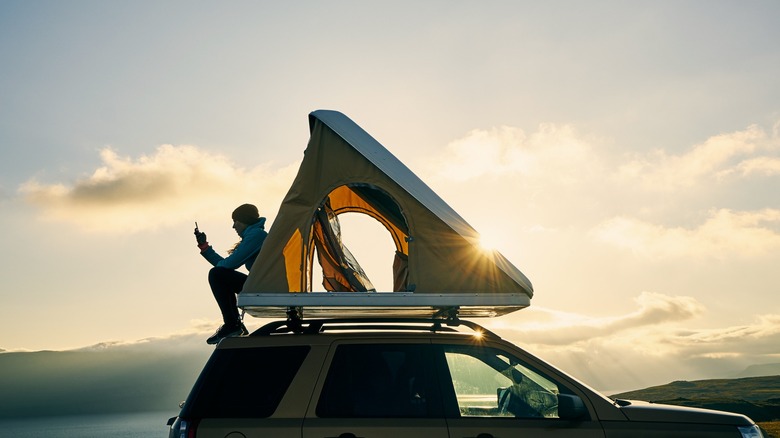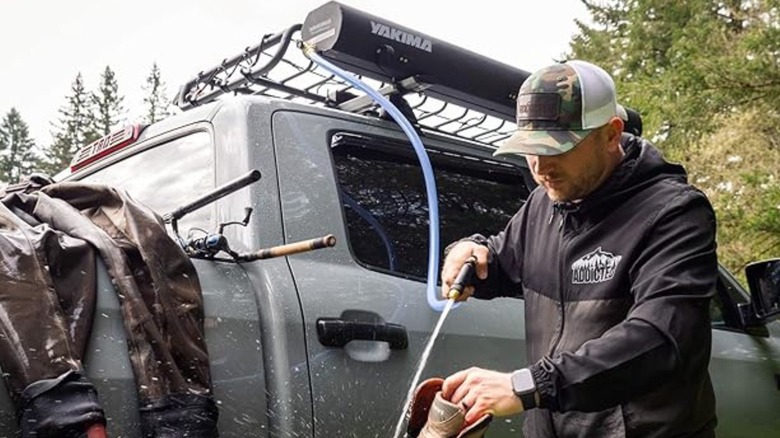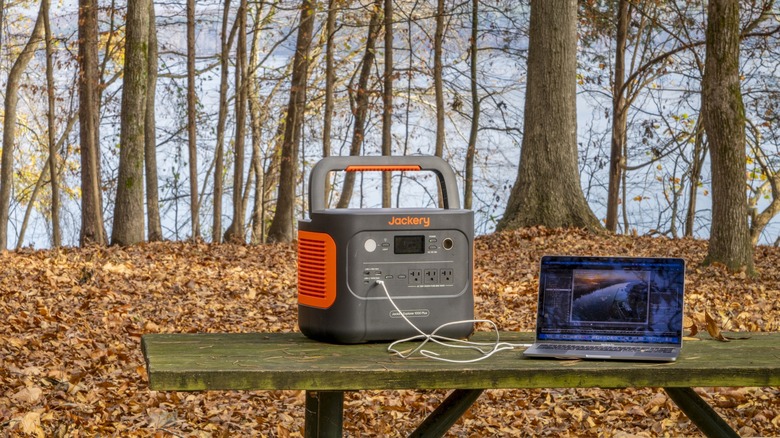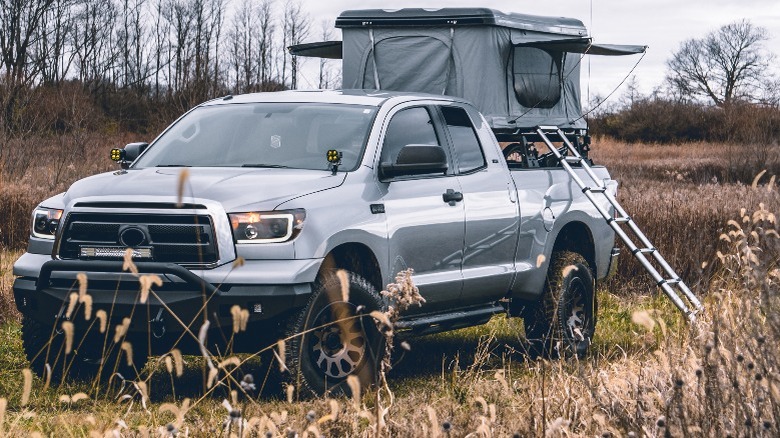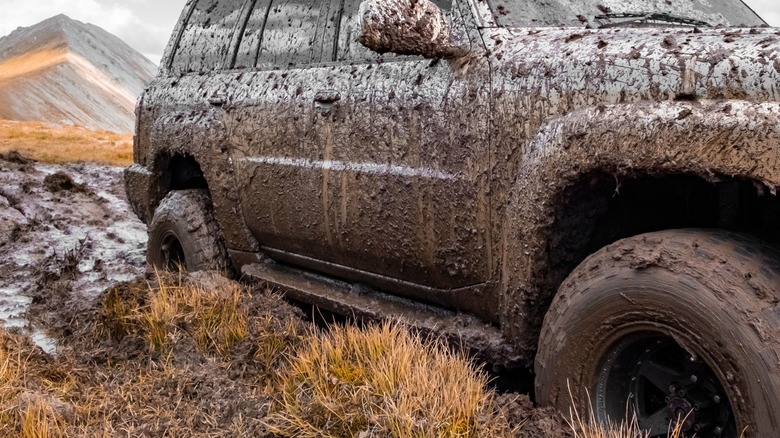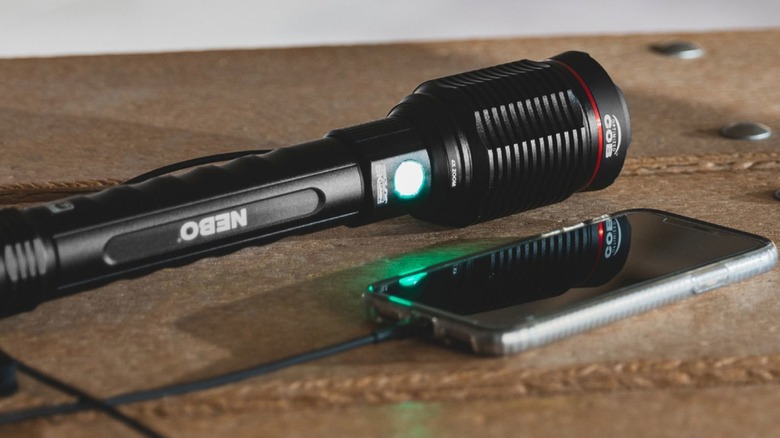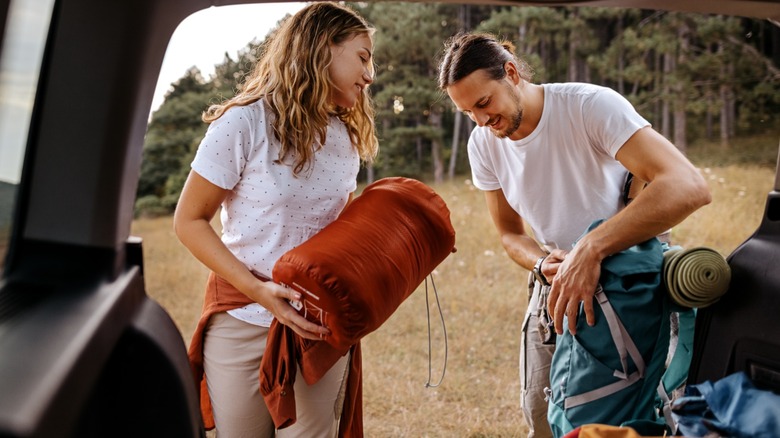6 Car & Truck Camping Tips For Your Next Outdoor Adventure
We may receive a commission on purchases made from links.
In today's society, car and truck camping can mean a variety of things. You could be set up with a car tent in the backcountry at a campsite you found using an app or have a rooftop tent ready to unfold at a moment's notice. Either way, there are aspects that come with vehicle camping that can make for a cramped or unpleasant experience. Cars and trucks weren't exactly designed to be lived in for a weekend or more.
Whether you're a beginner learning the ropes of truck camping or an overlander guru, it's always a good idea to refresh your knowledge of recreation with tips for a better experience. The tips listed in this article come from experience and recommendations from the writer and other outdoor enthusiasts who spend much of their time car or truck camping. These tips range from ways to make vehicle camping more comfortable to the knowledge you should keep with you while out in the wilderness.
Create a quick-to-set up portable bathroom
No one really likes to go to the bathroom in the wilderness — it's a vulnerable experience. Even more, there will be moments during a camping trip when you'll want to shower off the day, especially after a grueling hike. Some RVs are luxurious and contain a shower inside. However, if you're car or truck camping, that option doesn't exist. That's why it's important to have a bathroom set-up planned out before you take your camping trip.
There are all types of camping shower gadgets and toilet solutions to keep you as hygienic as possible. You can opt for a pressurized water tube like the Yakima Road Shower that attaches to the rack of your vehicle or even a hot water machine like Joolca's HotTap V2 that hooks up to a propane tank for a much-needed hot shower. In terms of toilet options, you can go as cheap as a five-gallon bucket with a camping toilet seat and biodegradable bags. However, there are also many highly-rated portable chemical toilets like the SereneLife Portable Toilet that can use toilet treatment drop-ins like an RV toilet.
In the end, it's up to you whether you want the hassle of dragging around heavier equipment or having to visit a dump station with your portable toilet. Whichever route you choose, though, don't forget a privacy tent — there are pop-up options that can be staked to the ground and foldable tents attached to your vehicle like an awning and come undone when you need to use them.
Be knowledgable of your electronics wattage output
Chances are, if you plan to be out for a few days and still need power for your phones and other electronics, you more than likely want to have a power source with you, like a Jackery or Goal Zero backup battery. However, it's important to be knowledgeable on how many watts each electronic device you bring with you uses. For example, a hairdryer on hot and high can use anywhere between 1500-2000 watts — that's astronomical and more than likely out of range of what your power source can do unless you went really big and pricy.
You'll want to take note of your power source's peak watt output and standard watt-hours. For example, Jackery has a small power station that advertises a 400-watt peak output, but you have to read the product overview to learn that it can only handle 290-watt hours. This means if you plug in a laptop to charge, and it's pulling 350 watt-hours, your power source won't be able to handle it and will shut down. A personal suggestion is to invest in a plug-in watt meter and test all your electrics with an outlet at home first. Harbor Freight sells a relatively easy watt meter to use with high reviews.
Stay aware of the camping rules of the area
If you're truck or car camping, some rules that apply to RVs may not apply to you. From experience, there have been campgrounds that have forbidden car camping — though, most of the time, rooftop tents will be permitted. Beyond that, there are usually other rules you'll need to familiarize yourself with, depending on where you are camping. Most national forests, Bureau of Land Management land, and other public lands have the standard 14-day camping limit and will require you to move at least 20-25 miles away (as the crow flies). However, permits are usually not required — though we highly suggest you do research before visiting any public land.
There are other places like state parks and other places that will require a permit for you to camp on the land, even if only for one night, and come with very specific rules for the land. For example, Arizona Trust Land requires a permit for individuals, families, and groups. You can utilize the land for recreational camping for only 14 days out of the year. However, it doesn't matter where you camp, whether at a campground or off-grid in the backcountry, Leave No Trace Behind is a rule everyone must and absolutely should follow.
Be prepared for different types of emergencies
Yes, taking only one vehicle out into the woods eliminates ground tent camping mishaps and RV mistakes, but that doesn't mean accidents and emergencies can't happen. It's best to think ahead about the typical problems that could happen for both the vehicle and yourself. The ultimate goal is to be able to get yourself out of a situation, like if you got stuck in a mud pit or lost on a back road. If you physically get hurt, you'll want to be able to reach out to emergency officials for assistance. For personal emergencies, it would be wise to keep your standard first aid kit and even a type of walkie-talkie like Rocky Talkie's Mountain Radio to keep in touch.
You should always keep the typical emergency tools in your vehicle, including but not limited to a fire extinguisher, a jump start battery, and a tire inflator. Additionally, traction boards, a shovel, and recovery straps are always good to have on hand. If you want to get prepared, especially if you plan to find yourself in the backwoods, mounting a winch to your truck's bumper can be your saving grace when you're stuck, and there's no one for miles to rescue you. From experience, if you decide to install a winch on your vehicle, make sure you practice with it in a safe place to understand how it works before you absolutely have to use it in an emergency.
Invest in multi-purpose gear
If you go car camping, you're more than likely sleeping in the back of your vehicle with the seats laid flat, especially if you do not have a rooftop tent. Though there are many accessories that are perfect for car camping, you're still going to want to pack light. Finding gear that can be used for multiple purposes is a good place to start. The easiest one to consider is a light and mini power bank in one. For example, NEBO sells a few different flashlights with plenty of lumens for visibility and enough power to add two to three charges for your phone. A personal favorite is the NEBO Redline 6k.
You can also consider tools that have multiple uses. Makita's Outdoor Adventure line includes several tools that would be advantageous while camping, and they all run off of the same 18V battery line. The Makita 18V LXT Variable Speed Blower is a useful tool for car camping because you can clear the area of debris and also use it to blow up a car air mattress quickly. Additionally, many hatchets often come with a hammer backing — although, as a safety warning, make sure the cover is over the axe blade before attempting to hammer stakes or anything else into the ground just in case it bounces back too much.
Being comfortable makes a huge difference
If you have ever tried sleeping on top of the lay-down car sets of a 4Runner or another vehicle, you know it's not comfortable, and it makes for a less-than-desirable experience. Car and truck camping, whether you're inside the vehicle's cab or hanging out in a roof tent, will require you to invest in comfort equipment like air mattresses, blankets, and heaters if you're camping during a cold night.
Though some rooftop tents will come with a decently thick pad, many cheaper ones will make you feel like you slept on the ground, and waking up with a strained back will ruin the rest of your wilderness weekend. Like your home mattress, purchase a good sleeping pad or air mattress. Additionally, make sure you have plenty of ventilation going through your vehicle. Fans and screens so you can roll down your window without bugs flying in are the way to create the ideal car or truck camping experience.
